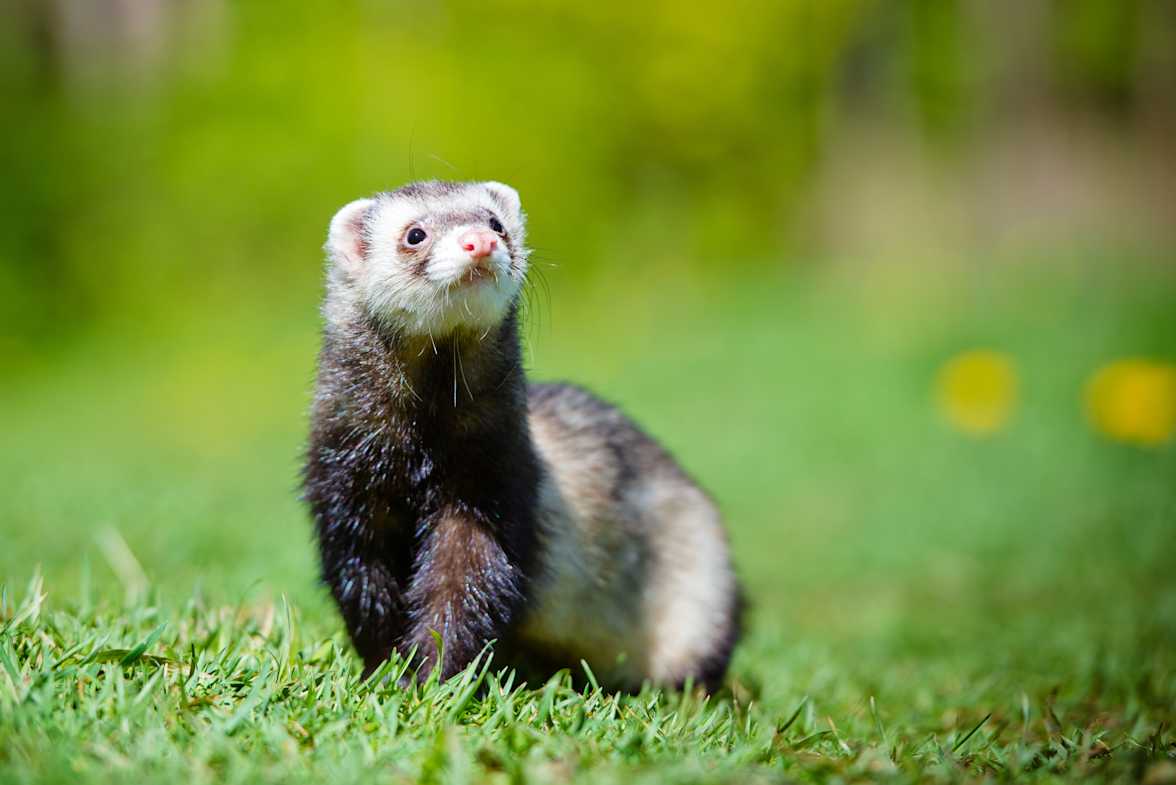
Do you want to keep ferrets as pets? Here’s what you need to know.
The history of ferrets
Ferrets have been associated with humans for thousands of years. Originally, they were domesticated in Europe and North Africa to help hunt rabbits and other small animals. Their slender bodies and curious nature made them excellent hunters. Today, ferrets are mostly kept as pets, loved for their playful and affectionate nature.
Living space
Before you decide to take on the challenge, and bring this predatory animal into your home, it's best to take a look at your new pet's housing options. Proper housing is essential to your ferret's well-being. The first question to ask is where your ferret will reside, namely indoors or outdoors? Both indoors and outdoors, there are certain things to consider.
For starters, the critter needs to be able to exercise and therefore needs space. If an indoor residence is provided, it is recommended to provide a minimum floor area of two meters. If you do plan to house the animal outdoors, there are several things to consider. For example, the minimum floor area should have a size of six meters. It is also important that the outdoor enclosure is well insulated and a night pen is provided. Ferrets are sensitive to heat and to sun so it is essential that the coop not be placed in full sun.
Next we come to the layout of a ferret hutch. What should be present in the hutch? We start here with a toilet pen. Ferrets like to do their needs always in a fixed place. Therefore, installing a separate toilet cubicle in the main pen is a must. This way, your ferret can do his or her business quietly. Ferrets like to be able to crawl away. This gives them a sense of security. Therefore, provide some pieces of cloth or towels in their sleeping area so they can crawl away and sleep underneath. Ferrets are curious animals that like to explore, so it is important to let them play outside their cage daily in a ferret-proof environment.
Nutrition
Ferrets are carnivores and need a diet rich in animal protein and fats. High-quality ferret food is specially formulated to meet their nutritional needs. HobbyFirst Hopefarm Ferret Balance is a complete food formulated for a healthy ferret. More information can be found here:
You can supplement their diet with raw meat and eggs, but avoid carbohydrates and sugar, as these are bad for their health. Ferrets need fresh drinking water every day. Their water bottle should be cleaned once a week to avoid unwanted bacteria.
Care
Ferrets need a check up on time. Check their teeth, nails, coat and ears on a regular basis. Ferrets are prone to dental problems, so it is important to keep their teeth clean with special ferret toothpaste and toothbrushes. Brush their fur weekly to remove loose hair and prevent tangles. Trim their nails regularly and check their ears for dirt and infections. Also make sure to keep the toilet area in their pen clean.
Some facts about ferrets
Ferrets sleep an average of 14-18 hours a day. They often do not become very active until dusk.
They have a unique odor that comes from their sebaceous glands.
Ferrets can crawl through tight spaces thanks to their flexible bodies.
They are very social animals and thrive with other ferrets or pets.
Ferrets can live up to 8 years with proper care.